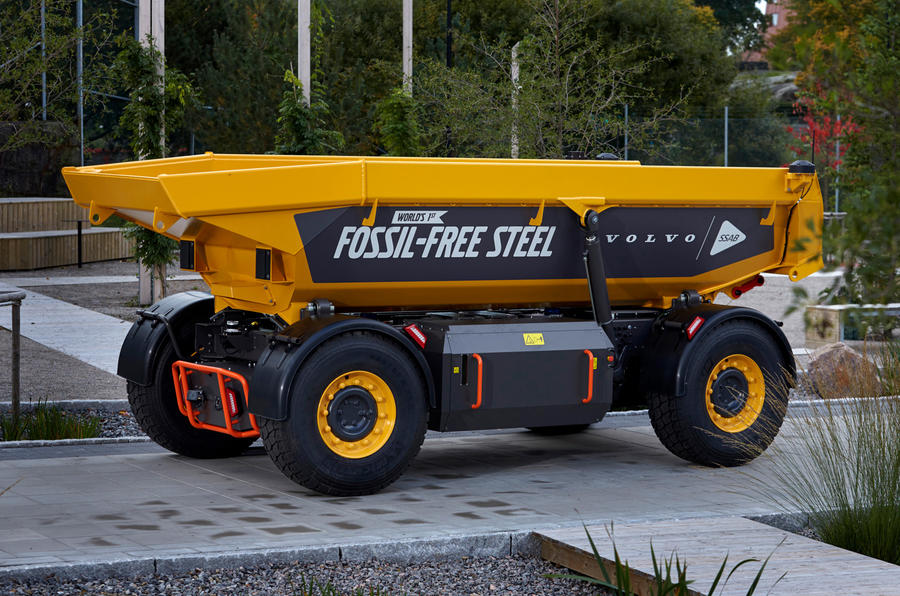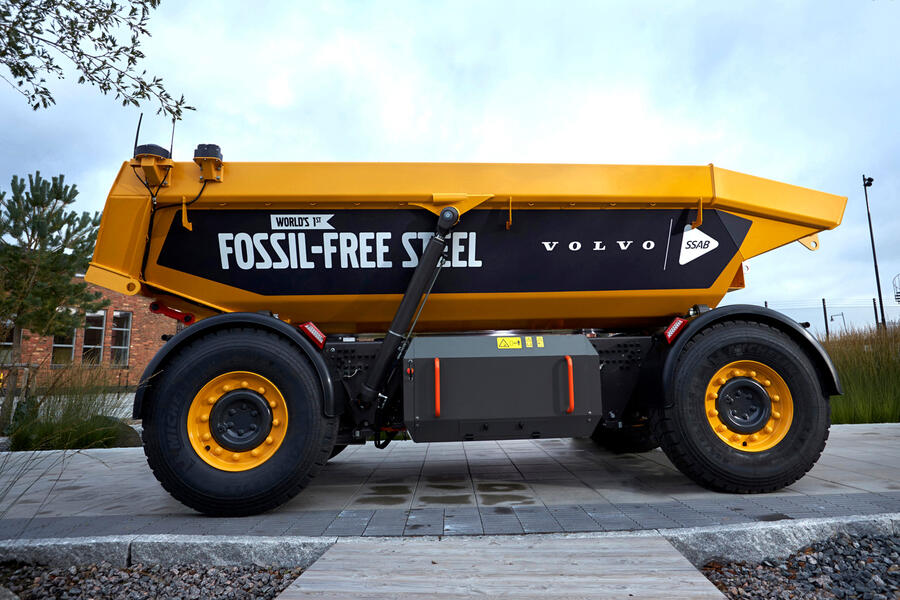
Volvo Group has revealed what it claims to be the first vehicle ever made using fossil-free steel – one of two initiatives designed to reduce emissions from its supply chain.
The load carrier – typically used for mining and quarrying – was constructed using ‘green steel’ supplied by Swedish manufacturer SSAB in August. Volvo says that 70% of a truck’s weight comes from steel and cast iron, and decarbonising its production is key to achieving its goal of climate-neutrality by 2040.
Weighing 8.2 tonnies, the load carrier is driven by a battery-electric powertrain and can operate autonomously. Small-scale series production is planned for next year, with mass production to follow at a later date.
“This initiative with SSAB sets the benchmark for a fossil-free future,” said Martin Lundstedt, president and CEO of the Volvo Group. “Just as the nations of the world come together at COP26 to address climate change, so too must organisations and industries work in collaboration to develop innovative new solutions for a greenhouse-gas-emission-free future.
“Volvo Group is committed to pioneering partnerships such as this with SSAB to develop attractive, safe and efficient new vehicles and machines that pave the way for a more sustainable transport and infrastructure system adopted for the future.”

The president and CEO of SSAB, Martin Lindqvist, added: “Having the world’s first actual vehicle made using SSAB’s fossil-free steel is a true milestone. Our collaboration with Volvo Group shows that green transition is possible and brings results. Together, we will continue reducing climate impact all the way to the end customer while ensuring that our customers get high-quality steel.”
Volvo also provided further details of its collaboration with steel firm Ovako, which plans to use a new plant in Hofors, Sweden, to heat steel with hydrogen prior to rolling for the first time. The model is expected to “greatly reduce CO2 emissions” in steel production, and surplus hydrogen created in the process will be used to power local hydrogen fuel cell electric vehicles (FCEVs).
Joe Holding



